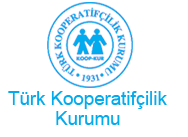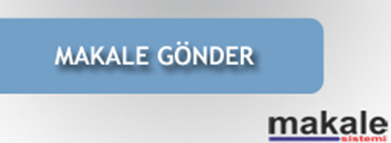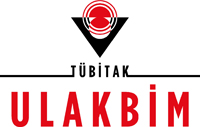Yıl: 2023 Cilt: 58 Sayı: 4 Sayfa: 3416-3454
doi: 10.15659/3.sektor-sosyal-ekonomi.23.12.2200
ÇEVRİMİÇİ HESAP VEREBİLİRLİK: BÜYÜKŞEHİR BELEDİYELERİNİN WEB TABANLI HESAP VEREBİLİRLİK UYGULAMALARINI ANLAMAK
ERCAN KÜÇÜKEŞMEN, ALİ ŞİMŞEK, ESRA VONA KURT
Günümüzde hesap verebilirlik, modern toplumdaki örgütlerin dönüşümüne ilişkin tartışmaların merkezinde yer almaktadır. Bugün kurum ve kuruluşlardan faaliyetlerini şeffaf bir şekilde sürdürerek hizmet ettikleri topluma ve hedef kitlelerine karşı, şeffaf örgütsel uygulamalarla karakterize edilen ve daha hesap verebilir bir çerçevede sorumluluklarını yerine getirmesi beklenmektedir. İnternet tabanlı teknolojilerin yaygınlaşması, temel demokratik bir ideal olarak kavramsallaştırılan hesap verebilirliğin gösterilmesi ve teşvik edilmesi için önemli bir potansiyeli beraberinde getirmektedir. Bu bağlamda, belediyelerin web siteleri, vatandaşların kamu hizmetleriyle ilgili bilgilere erişimini kolaylaştıran ve katılımını teşvik eden önemli bir araç haline gelmiştir. Bu çalışmanın temel amacı, internet üzerinden yayınlanan bilgilerin hesap verebilirlik düzeylerinin Web Kalite Modeli (WKM) ile belirlenmesidir. Bu amaç doğrultusunda Türkiye’deki 30 büyükşehir belediyenin web sitesi incelenmiştir. Çalışmanın önemli yönü verilerin analizinde “açıklama indeksi” değerinin hesaplanması ve “güvenirlilik analizi” verilerin güven aralıklarının incelenmesidir. Elde edilen verilere Jamovi v2.3.26 programı kullanılarak hiyerarşik regresyon analizi yapılmıştır. Analizler sonucunda, sadece büyükşehir belediye başkanının siyasi görüşü veya siyasi kimliği web kalite modeli indeks değerini etkilemektedir. Bu çalışmanın kamu ve/veya özel sektör web sitelerinin incelenmesi, düzenlenmesi ve geliştirilmesi, hesap verebilirlik düzeylerinin artırılması ve ileride yapılacak çalışmalara ilham kaynağı olacağı öngörülmektedir.
Anahtar Kelimeler (Keywords): Hesap Verebilirlik, Çevrimiçi Hesap Verebilirlik, Web, Web Kalite Modeli, WKM
ONLINE ACCOUNTABILITY: UNDERSTANDING METROPOLITAN MUNICIPALITIES' WEB-BASED ACCOUNTABILITY PRACTICES
In today’s world, accountability sits at the core of discussions revolving around the transformation of organizations in modern society. Nowadays, institutions and organizations are expected to conduct their activities transparently and fulfill their responsibilities in a more accountable framework, characterized by transparent organizational practices towards the communities and target audiences they serve. The widespread use of internet-based technologies brings significant potential for demonstrating and promoting accountability, conceptualized as a fundamental democratic ideal. In this context, municipal websites have become an essential tool that simplifies citizens’ access to information about public services and encourages their participation. The primary objective of this study is to determine the accountability levels of information published online through the Web Quality Model (WQM). In line with this aim, the websites of 30 metropolitan municipalities in Turkey have been examined. An essential aspect of this study is the calculation of the “disclosure index” value in the analysis of the data and the examination of the “confidence intervals” of the data through a “reliability analysis”. A hierarchical regression analysis was performed on the obtained data using the Jamovi v2.3.26 program. According to the analysis, only the political view or identity of the metropolitan mayor affects the web quality model index value. This study is anticipated to inspire future research and contribute to the examination, regulation, and development of public and private sector websites, enhancing accountability levels.
Anahtar Kelimeler (Keywords): Accountability, Online Accountability, Web, Web Quality Model, WQM
Tam Metin 234











